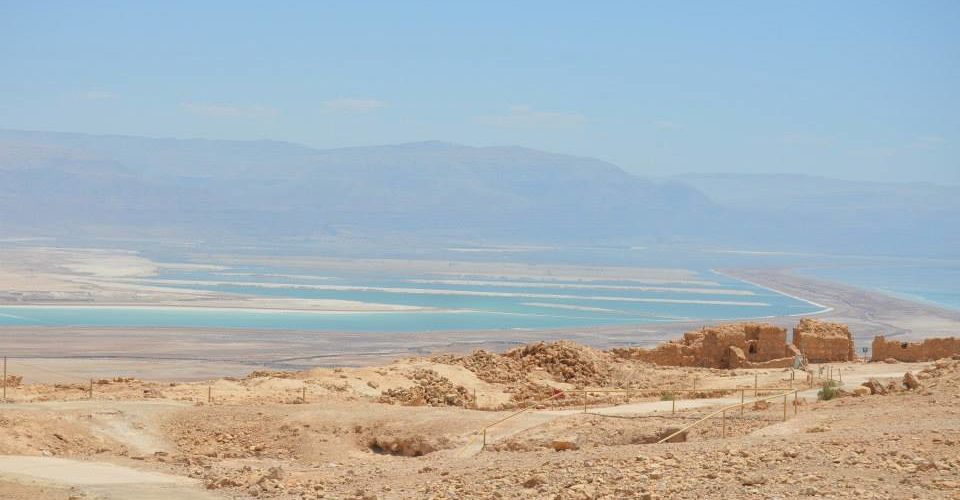Research Paper and Op-ed by Jacob Kagon
Extreme poverty, disease, and war have turned the holy land region, known as Palestine, into one of the most unstable regions in the world. Palestine is a small territory consisting of the Gaza Strip on the Mediterranean Coast and the West Bank, a sliver of land between Israel and Jordan. In 1948, the United Nations passed a resolution creating the state of Israel. This resolution forced many Palestinians living in Israel to move into the Palestinian territories. The Six Day War between Israel and its Arab neighbors in 1967 led to Israel’s occupation of the West Bank and the Gaza Strip.
Since then, there have been many border skirmishes and disputes. A terrorist organization known as Hamas was formed in response to the Israeli occupation and took political control of the Gaza Strip, to which it still controls today. In the West Bank, the Palestinian Authority (PA) governs and considers itself the spokesperson of the Palestinians, which Hamas denies. Following the start of the Israeli occupation, the international community began intervening. The United Nations (UN) created an organization called United Nations Relief and Works Agency (UNWRA) to deliver humanitarian aid to the Palestinians. Due to the ongoing Israeli-Palestinian conflict, the quality of life in the Palestinian territories has deteriorated to extremely low levels, especially in the Gaza Strip. I will investigate this deterioration in Palestinian quality of life starting in the 1980’s through analyzing the discourse of the Israelis and Palestinians on the issue.
Israeli Views on Quality of Life:
Israel has occupied the Palestinian territories since 1967 and ever since has increased occupational pressure on the Palestinians. Israel primarily blames the governance of Hamas and the PA for low levels of quality of life. In 2011, Israeli Prime Minister Benjamin Netanyahu gave a speech to the United Nations General Assembly about current efforts in the Israeli-Palestinian peace process and the current situation in Palestine. Netanyahu began the speech by saying how Israel left the Gaza Strip completely, but it still had a very poor quality of life. Netanyahu criticized those that said Israel was behind poor Palestinian quality of life; he showed that Palestinians have control over their land and people, at least in the Gaza Strip, and do not govern it properly.
Additionally, Israel accuses Hamas and the PLO of not doing enough for their own people. Netanyahu argues that if only the Palestinians spent more money on building up their cities and less on building up their weapon stockpiles, not only would the road to peace be easier, but Palestinians would have a higher quality of life. Not only does Israel argue that the poor quality of life of Palestinians is the fault of Hamas and the PLO, but also that Israel is trying to improve Palestinian quality of life. Israel said in 2010, “The steps that Israel has taken include measures to enhance freedom of movement both within the West Bank and between the West Bank and Israel.” (“Behind the headlines: The Palestinian refusal to negotiate peace,” (Jerusalem: Israeli Ministry of Foreign Affairs 2010) After, a report stated that by Israel decreasing mobility restrictions on Palestinians, it incentivizes greater economic opportunity. The Israeli government backs this up by stating that the West Bank economy grew 8% in 2010 and is supposed to grow by double digits in the coming years (“Behind the headlines: The Palestinian refusal to negotiate peace.”). Another report stated that “Major Israeli checkpoints have been reduced from 42 to 14 today, greatly eliminating the restrictions imposed on Palestinians due to security concerns following terrorist attacks.” (“Palestinian Quality of Life” (Israel: Misson of Israel to the UN in Geneva, 2009), 1.). Counteracting this, Palestinians claim that mobility restrictions caused by the Israeli occupation are to blame for why Palestinian economic growth and overall quality of life has faltered. However, the number of roadblocks has decreased, which means that economic growth should increase. Per statistics gathered by Trading Economics, the economy in the West Bank did, in fact, grow by 10% in 2010, but growth rates have since fallen, which shows that Israel’s prediction of continued double-digit economic growth in the West Bank is false (“Palestine GDP Annual Growth Rate” (Trading Post, 2017)). It also shows that although Israel has reduced the number of roadblocks in the Palestinian territories, it has not increased economic growth.
The argument that Palestinian quality of life is not as bad as people make it out to be aligned with the Israeli argument. However, the Israelis also blame local governance in the Palestinian territories for a poor quality of life. While evidence of government misusing funds, such as Hamas using the money to buy weapons, is factually correct, this does not paint the whole picture of who is to blame for poor Palestinian quality of life.
Palestinian Views:
From a Palestinian perspective, both Hamas and the Palestinian Liberation Organization (PLO) believe that the Israeli occupation is primarily responsible for poor Palestinian quality of life. PLO founder, Yasser Arafat in a 1974 UN General Assembly speech blamed Zionism for much of the issues in the Palestinian territories. Arafat said, “So the Zionists movement allied itself directly with world colonialism in a common raid on our land,” (Yasser Arafat. “Arafat Speech to the UN General Assembly” (New York: Le Monde diplomatique, 1974)) Arafat believed Israel to be a colonialist, and that their intention was to colonize the Palestinian territories. He also referred to Israel as the enemy of the Palestinians. Arafat tried to make Israel into the enemy during his speech to the UN. He entirely blamed Israel for all that was wrong in Palestine. Current Palestinian leader Mohammed Abbas had a slightly different view of Israel and their role in poor Palestinian quality of life.
Mahmoud Abbas also viewed the ongoing Israeli occupation as the root cause of poor Palestinian quality of life but saw Israel as less severe than Arafat. In a 2011 UN, General Assembly Speech, Abbas said, the most significant factor was the separation wall of the West Bank. Abbas said that the acceleration of the building the wall, “is eating up large tracts of our land, dividing it into separate and isolated islands and cantons, destroying family life and communities and the livelihoods of tens of thousands of families,” (Mahmoud Abbas, “Full Transcript of Abbas Speech at UN General Assembly” (Tel Aviv: Hareetz, 2011)). Abbas claims the separation wall detaches Palestinian villages from one another, which is increasing economic depression in the Palestinian territories.
Although the speeches of Palestinian leaders are important in understanding the views of Palestinians, data from the Palestinian people directly helps paint a more complete picture. In an article by Weeam Hammoudeh et al., they identify the quality of life in Palestine before and after the 2008 war and possible causes. The researchers conducted interviews, focus groups, and surveys to identify what Palestinians thought about their Palestinian quality of life. The researchers concluded that Palestinian quality of life was better before the war. Also, the Israeli occupation was found to be the root cause of poor Palestinian quality of life (Hammoudeh et al, “Quality of life” (Berlin, Springer, 2013), 1372). They thought that the Israeli occupation and mobility restrictions caused economic opportunity to falter.
Findings:
Through the collection of different discourses between Israelis and Palestinians, it was found that the ongoing Israeli occupation is primarily responsible for poor Palestinian quality of life. The most significant factor of the Israeli occupation is the mobility restrictions placed on Palestinians living in the territories. These mobility restrictions come in the form of roadblocks, checkpoints, and the barrier wall in the West Bank. Mobility restrictions placed by the Israelis have led to the inability to access basic needs such as hospitals, markets, and schools. While it was found that the Israeli occupation is the primary cause of poor Palestinian quality of life, it was not the only cause. Poor local governance was also seen as a cause of poor quality of life. The lack of democratic institutions in the Palestinian territories as well as misuse of funds by Hamas contributed to why many Palestinians live in poverty or are refugees.
The best way to improve Palestinian quality of life is to place fewer mobility restrictions on Palestinians and provide further supplies and funding to the PA. Expanding the UNWRA’s role in overseeing the Palestinian territories and Palestinian governments would also be an effective tool in making sure that the PA or Hamas do not abuse their power. The United States could also do a lot to reel in the Israeli occupation by cutting funding to the Israeli military or divert funds to Palestinian relief. Policy changes are needed to prevent a further worsening in Palestinian quality of life.
It appears that as long as the Israeli-Palestinian conflict remains, there will not be a lot of major improvements in Palestinian quality of life. If the Palestinians are to have a good quality of life they must be in control of their destiny. For them to do this, they must have their own state. The Israeli occupation is preventing them from having the political freedoms necessary to drastically improve their situation. It is the job of not only the Israelis and the Palestinians to work to make the living quality in Palestine better, but also the job of the International community to oversee these changes and help through increasing humanitarian supplies and funding to areas most affected by the ongoing conflict. While a permanent solution does not seem likely under the current circumstances, small steps can be taken by all actors to ensure that Palestinian quality of life does not fall any further and the development of Palestine continues.

Jacob Kagon
Jacob is a Junior, studying International Relations with a minor in Spanish. Originally from Malibu, California where he likes to surf and play ping pong, his favorite activities in DC include going to Air and Space Museum where he works and making French Press coffee.
Last summer, Jacob spent three months in Israel interning at an Israeli think tank, NGO Monitor. While in Israel, he traveled to the West Bank, Egypt and Jordan to get a better idea of the regional makeup. Not only interested in Middle Eastern politics but also the ongoing refugee crisis, Jacob will spend a month this summer in Chios, Greece assisting refugees fleeing war zones.
Opinions presented in this article do not represent those of the AU Center for Israel Studies. These views are only those of the author.



Firswt of all I want to say tertrific blog!
I had a quick question whichh I’d like too ask iff you
do not mind. I was curious too find out how you center yourself and clear your mind prior to writing.
I have had a difficult time clearing my thoughts in getting my ideas out there.
I do enjjoy writing however it just seems like thhe first 10
to 15 minutes are generally wasted just trying to figure out how to begin. Any suggestions or tips?
Many thanks!
Before I start writing, I imagine what my final paper is going to look like. Sometimes the paper is completely different than what I imagined, but that’s okay. Then as a way to get my thoughts onto paper, I craft an outline. This will make writing longer papers a lot easier. Finally, if I ever feel like I don’t know what to say next, I take a walk which helps me clear my head.
Best,
Jacob Kagon